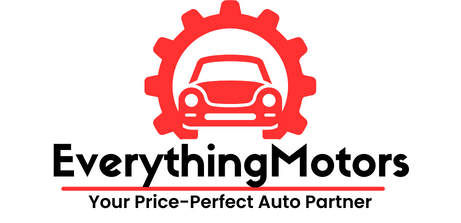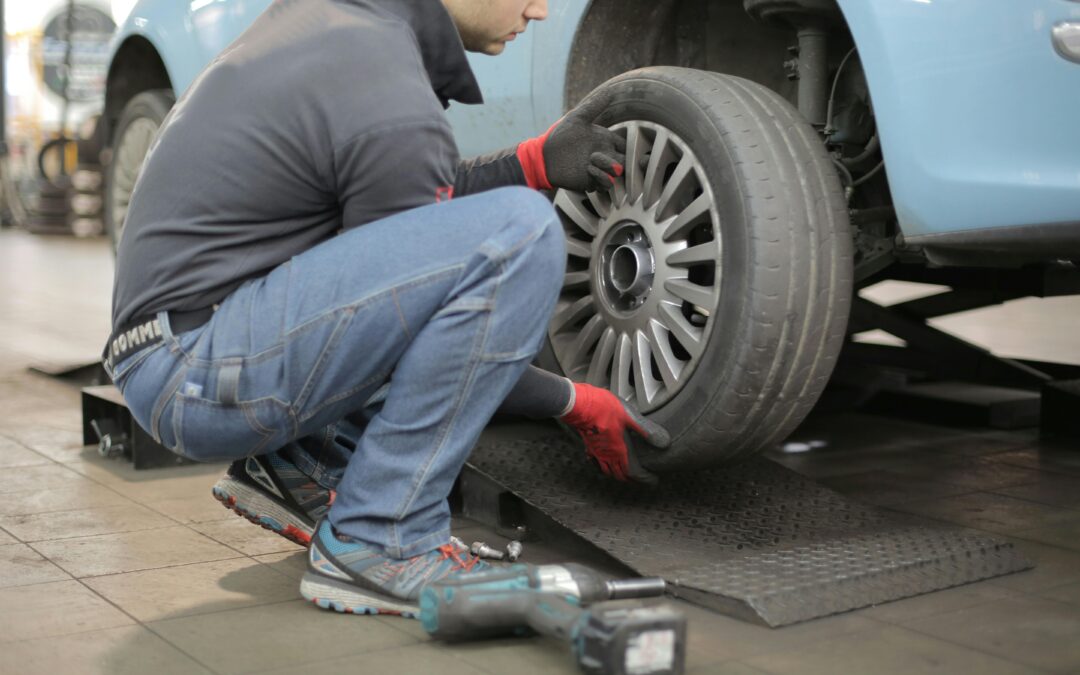Owning a car in Nigeria brings a lot of freedom and convenience, but it also requires responsibility. A well-maintained vehicle not only saves money on costly repairs but can also be the difference between a safe journey and a road accident. Many drivers overlook basic vehicle maintenance, which can lead to serious safety issues on Nigerian roads. Here’s a comprehensive guide on Vehicle Maintenance Tips to Prevent Road Accidents in Nigeria.
1. Regularly Check Your Tire Pressure
Tires play a critical role in vehicle safety, yet they’re often neglected. Driving with underinflated or overinflated tires can make your car harder to control, especially at high speeds or on rough roads. Low tire pressure also increases fuel consumption and causes uneven tire wear, reducing tire lifespan.
Check your tire pressure every two weeks, ideally before long trips. Nigerian roads can be unpredictable, with potholes, gravel, and uneven surfaces that can easily damage your tires. Most cars have recommended tire pressure levels listed on the driver’s door frame or in the manual. Use a reliable gauge to ensure each tire is properly inflated.
- Rotation and Balancing: Rotate your tires every 5,000 to 10,000 kilometres to ensure even wear. When you visit your mechanic, ask about wheel balancing and alignment services. These simple steps can significantly improve your car’s stability and help you avoid blowouts.
- Monitoring Tire Condition: Replace your tires if they appear worn, have visible cracks, or low tread depth. If you’re unsure about tire costs or quality, services like Everything Motors offer a price checker for vehicle parts to ensure you’re not overcharged.
2. Regular Oil Changes and Engine Oil Checks
Engine oil is crucial for keeping your car’s engine running smoothly by lubricating internal parts and reducing friction. Old or insufficient oil can lead to overheating, which can cause significant damage and potentially lead to engine failure.
- Oil Change Frequency: Follow the oil change intervals in your car’s manual – usually every 5,000 kilometres or every three to six months. Synthetic oils are a better choice in hot Nigerian climates as they offer better performance and longer lifespan.
- Choosing the Right Oil: Use the oil type recommended for your car, based on your driving conditions and the vehicle’s mileage. Check the oil viscosity and opt for synthetic oil for older cars. For more detailed guidance on selecting the right oil for your vehicle, check out our article on How To Choose The Best Type Of Engine Oil For Your Vehicle.
- Checking Oil Levels: Checking your oil level is easy and should be done monthly. If the oil looks dark and dirty, it’s time for a change. Always refill or change the oil at a trusted mechanic; Everything Motors offers reliable connections for high-quality services.
3. Don’t Forget About Other Essential Fluids
Your car depends on more than just oil. Other fluids play critical roles, from ensuring smooth steering to responsive braking. The Nigerian Bureau of Statistics found that 60% of vehicle breakdowns are related to faulty brake systems, which often result from low or leaking brake fluid..Check these regularly to avoid unexpected failures:
- Coolant (Antifreeze): Keeps your engine cool, especially in Nigeria’s hot climate. Low coolant levels can lead to engine overheating.
- Brake Fluid: Essential for effective braking. Low brake fluid may indicate a leak or worn-out brakes, so check it regularly to prevent brake failure.
- Power Steering Fluid: Helps you turn the steering wheel with ease. Low fluid levels make steering stiff, which is risky in emergency situations.
- Transmission Fluid: Ensures smooth shifting. If it’s low, you may experience jerky shifts or even transmission damage.
- Windshield Washer Fluid: Keeps your windshield clear for visibility, especially during Nigeria’s rainy season.
Warning Signs: A leak in any of these fluids may indicate a bigger issue. If you see a puddle under your car, identify the colour of the fluid and get it checked immediately. Mechanics on Everything Motors can help locate and fix leaks efficiently.
4. Test Your Battery and Clean Terminals
A dead battery can leave you stranded, so it’s essential to monitor its condition regularly. Batteries typically last between 3 to 5 years but may wear out sooner due to extreme temperatures or frequent short trips.
- Battery Check: Check the battery terminals for corrosion (a white or greenish substance) and ensure they’re securely fitted. Clean terminals if needed, as corrosion can interfere with electrical connections.
- Replacing the Battery: If you notice dim headlights or issues starting the engine, it might be time to replace the battery. Everything Motors offers a variety of batteries, ensuring quality options for different car models, and their specialists can help you choose and install the right one.
5. Inspect Your Lights for Visibility and Safety
Your headlights and taillights are critical for visibility, especially when driving at night or in poor weather conditions. Faulty or dim lights can put you and other drivers at risk, as they reduce the time you have to react to obstacles.
- Headlights and Taillights: Check them regularly and replace burned-out bulbs immediately. If you notice a decrease in brightness, it could be the bulbs or a problem with the fuse.
- Indicator and Brake Lights: Functioning indicator and brake lights are just as important as headlights. They let other drivers know when you’re turning or slowing down, preventing rear-end collisions.
- Fog Lights: If your car has fog lights, ensure they’re functional, especially during Nigeria’s rainy season, which brings limited visibility.
For a deeper look into critical light indicators, check out our blog on Dangerous Vehicle Warning Lights You Must Never Ignore
6. Replace Windshield Wipers Regularly
Windshield wipers are often overlooked until heavy rains hit, but they’re essential for maintaining visibility in wet conditions. In Nigeria, where sudden rains are common, having functional wipers can be a lifesaver.
- When to Replace: Change your wipers every six months or as soon as you notice streaks or reduced effectiveness.
- Installation Tip: Installation is simple, but if you’re unsure, a mechanic can help. Everything Motors offers vehicle part checks and wiper replacements, connecting you with mechanics in your area.
7. Monitor and Maintain Your Brakes
Brakes are one of the most crucial safety features in your car. Any sign of brake wear, like squealing sounds, longer stopping distances, or a soft brake pedal, means it’s time for an inspection. Following these vehicle maintenance tips to prevent road accidents in Nigeria can help you avoid dangerous situations caused by faulty brakes. Worn-out brakes increase your stopping distance, which can be especially risky in Nigeria’s heavy traffic or during emergencies.
- Regular Brake Checks: Have your brakes inspected at least once a year or whenever you hear strange sounds.
- Replacing Brake Pads: Change brake pads as needed to ensure maximum stopping power. Don’t delay brake repairs; Everything Motors connects you with mechanics who specialise in brake maintenance.
8. Align and Balance Your Wheels
Wheel alignment and balancing are important for a smooth, stable ride. Misaligned wheels cause uneven tire wear and make it harder to control the vehicle. This can be particularly hazardous on Nigeria’s rough roads.
- Signs of Misalignment: If your car pulls to one side or the steering wheel vibrates, it’s time for an alignment check.
- Wheel Balancing: Wheel balancing reduces vibrations and helps your tires last longer. Getting alignment and balancing every 10,000 kilometres or after hitting a pothole is a good rule of thumb.
9. Inspect Belts and Hoses
Belts and hoses are critical for engine function. A broken belt can lead to engine failure, while a leaking hose can cause overheating.
- Signs of Wear: Look for cracks, fraying, or any signs of aging on belts. Hoses should be soft and flexible, not brittle.
- Replacing Worn Parts: If you notice issues, replace the parts immediately. Platforms like Everything Motors provide access to high-quality replacement parts and connect you with skilled mechanics.
10. Check Dashboard Warning Lights
Dashboard warning lights are designed to alert you to potential issues. Ignoring these lights can put you at risk of breakdowns or accidents.
- Common Lights: Check engine, ABS, oil pressure, and tire pressure warning lights should be taken seriously. If any light stays on, have it checked by a professional.
- Consult Your Mechanic: Everything Motors allow you to find mechanics who can diagnose and fix these issues, keeping your car safe on the road.
11. Keep Your Car Clean for Better Visibility
A clean car isn’t just for appearances. Dust, dirt, and grime on windows and mirrors can reduce visibility. In Nigeria, where dusty and muddy roads are common, keeping your windows clean is essential.
- Interior and Exterior: Regularly clean your windows, mirrors, and windshield from both the inside and outside.
- Headlights and Taillights: Dirt on your lights can reduce their effectiveness. Wipe them down frequently to improve visibility at night.
12. Schedule Regular Servicing
Routine servicing helps you catch potential problems early, reducing the chances of a major breakdown. By following these vehicle maintenance tips to prevent road accidents in Nigeria, you can reduce the chances of a major breakdown. Schedule service checks every six months or according to your car’s manual. These checks often include oil changes, fluid checks, and inspections for wear and tear.
Key Benefits of Regular Servicing:
- Identifying small issues before they become costly repairs.
- Ensuring optimal performance and fuel efficiency.
- Peace of mind knowing your vehicle is in safe working condition.
With the right maintenance, you can enjoy smoother, safer rides. Take advantage of Everything Motors services for easy access to reputable mechanics, vehicle parts, and service options.
Vehicle maintenance is not just about keeping your car looking good; it’s about ensuring your safety and the safety of others on the road. In Nigeria, where road conditions and unpredictable traffic can pose a significant risk, being proactive about your car’s health can make all the difference. Regularly checking your tire pressure, changing engine oil, topping up essential fluids, maintaining your lights, and taking care of your battery are small steps that can prevent major accidents and breakdowns.
By investing in regular maintenance, you’re not only extending the life of your vehicle but also helping to reduce the risk of accidents that could lead to severe injuries or even fatalities. With trusted service centers like Everything Motors offering quality parts and repairs, keeping your car in top condition has never been easier. Don’t wait for a breakdown or warning light—take charge of your vehicle’s health today, and enjoy safer and more reliable driving on Nigerian roads.


